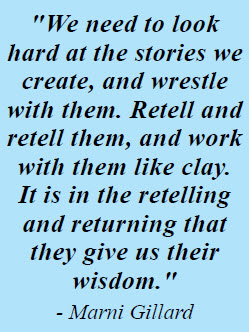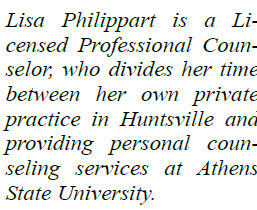The Story Of Narrative Therapy
 By: Lisa Philippart
By: Lisa Philippart
I love words, and writing, and stories. I always have. When I was in elementary school, my favorite time of the day was creative writing. We would be given a topic, or a sentence, to get us started, and then we were to just write. Because I tend to be more introverted, (although I do believe we are all ambiverts depending on the situation… topic for another time!) words and writing quickly became my favorite venue. I could take the time to think about exactly what I wanted to say and how to say it. And if it didn’t sound right, I could erase and start over. I didn’t have to be quick on my feet as in the verbal world. Nothing gave or gives me greater pleasure than to discover the perfect word to describe a feeling or an object or an event. I am a believer in the power of words to harm or soothe, to encourage or degrade, to transport or to stifle. So, it only makes sense that there would be a therapy technique that uses stories. Narrative therapy is a method of mental health counseling that separates the person from the problem through the stories we tell ourselves.

Narrative therapy is a positive and encouraging way for people to rely on their own skills to minimize problems in their lives. For all of us, our personal experiences become our personal stories. And for better or worse, these stories develop meaning for us and help shape our identity. NT uses the power of these stories, our life stories, to help us discover our life purpose and direction. I believe, and NT believes, that each of us is the “narrator” of our own story. The basics of NT are rooted in the role of the therapist to empower and collaborate with the client. By separating the person from the problem, people can focus on using their skills and expertise in guiding change in their lives. My goal, as the therapist, is to externalize the issue/problem. I love the idea that telling your story is a form of action toward change. How does this work?

As a narrative therapist, I have three goals: to help objectify the problem, frame the problem in a larger social and cultural context, and then teach my client how to make room for other stories. The idea is for us to identify and build on an alternative or more preferred storyline for life. Your best life. Take a moment and think about something that is causing distress in your life. Is the real problem the story you have been telling yourself? Your storyline is separate from the problem, which allows you to rewrite your story! You are writing your story every day. And if you are in the present moment, you are writing in pencil, with a big eraser on the end of it! What is the impact of your problem? NT helps the client to identify what is valuable in a broader context…beyond just the problem itself. It probably goes without saying (but I’ll put it in writing here) that there is always a connection between your actions and your choices. If we can connect our pattern of choices to life experiences, we gain insight into how to address problems going forward.

What I truly love about NT is that my goal is not to transform my client. (No one can do that but you!) My goal is to transform the effects of the problem…to make space between you and your challenges. And this can help you develop greater self-compassion. “I’m not the problem. The problem is the problem.” On your own, I encourage you to journal. Whatever that means for you. Some people enjoy blogging. I started a private blog several years ago, documenting the interconnectedness of my life with my grandchildren. Some people prefer pencil and paper and the actual process of writing. And now you can even write your story on your phone! If you have trouble getting started, there are journals that have daily prompts. And if you aren’t a “writer,” then please just take a few minutes each day to jot down three things you are grateful for, or one thing you learned, or one act of kindness you showed. Your book is being written, with or without you. This new year is waiting for you to share your story.
By: Lisa Philippart
Licensed Professional Counselor